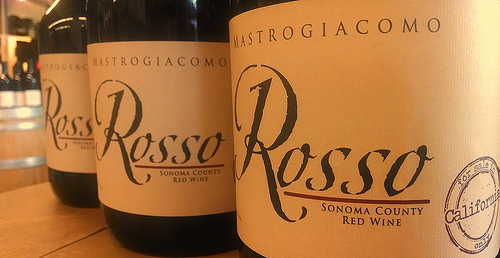Enter Dave Phinney.
Dave Phinney, creator of The Prisoner and Orin Swift offers a guiding light to reinterpret and reposition the California designation. We can debate the Phinney wine making style; not the sales results. Phinney sourced The Prisoner (now owned by Constellation) like many winemakers have for years, from all over California. Constellation has announced that The Prisoner Wine Company will have its own tasting room replacing Franciscan Estate in the heart of Napa Valley.
Orin Swift, now owned by Gallo, forever changed the landscape with California appellation wine designations garnering a premium price with the likes of Trigger Finger, Abstract, and Machete. Brilliant! Judging by commercial success alone, the Orin Swift and Prisoner wine business models are successful.
The new California wine model is focused more on the word California than whether you are a new or old style of winemaker, or whether or not you use a specific varietal or vineyard or what appellation the grapes are from.
Can I borrow $8000 for a ton of Cabernet?
Using the California labeling designation to its fullest extent, as Phinney has done, is one option for the boutique winemaker’s to grow and flourish. How much $5000/ton Pinot from Russian River can a micro winemaker buy each year? Or $8000/ton Cabernet from Napa? How long can a small winery float that money before they have to have positive cash flow? One season? Two?
By using the broad California appellation designation, a wine maker can use grapes from any part of the state. Early ripening, colorful, fruity and less expensive ($650/ton) Petite Sirah from District 13 (Fresno/Madera) combined with slightly more expensive ($1200/ton) Tempranillo in the Foothills (Amador/El Dorado) and finished off with some average priced Cabernet Sauvignon ($3200/ton) from the North Coast Appellation (Lake/Mendocino/Sonoma) and voilà, California Red Wine is made.






